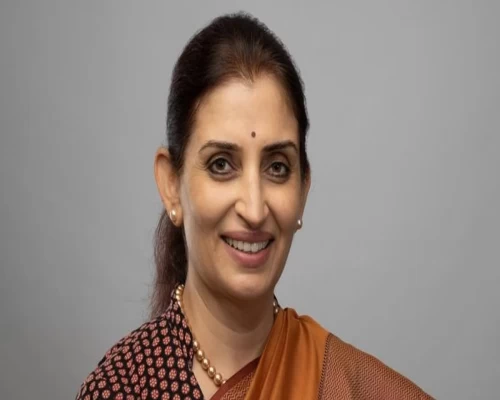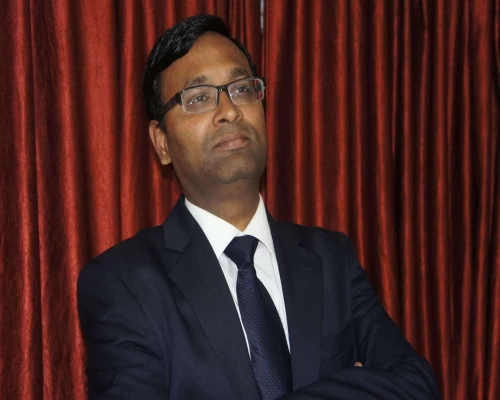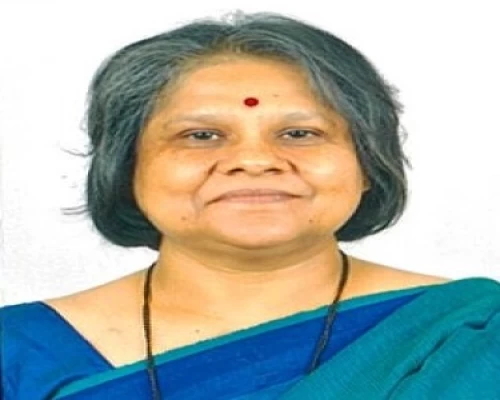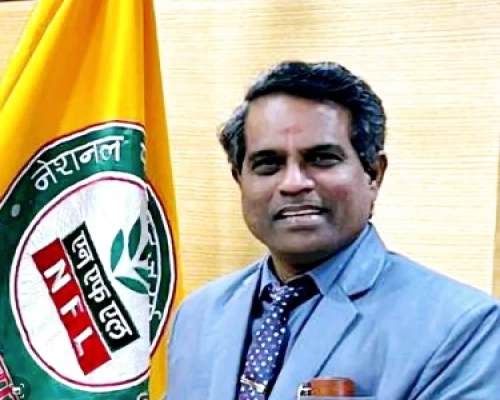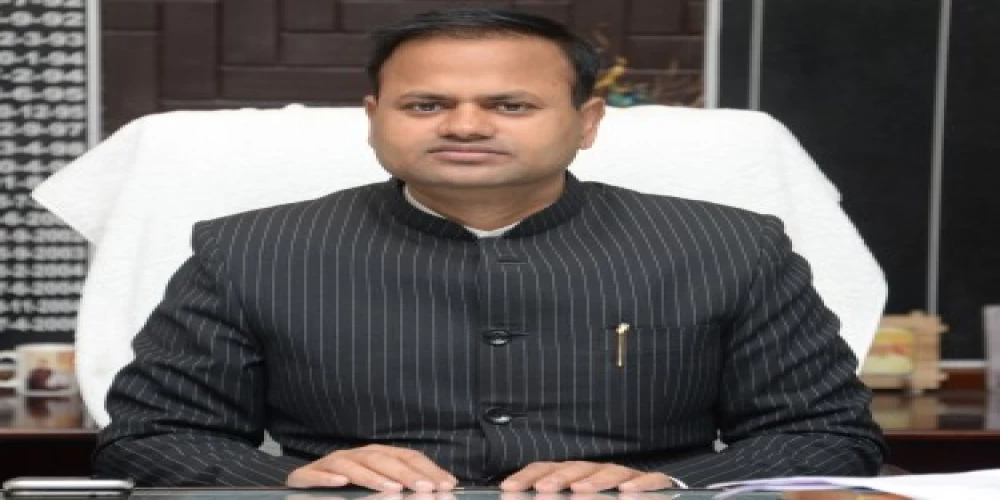
How has been your journey in bureaucracy so far?
My journey has been full of diversity and I have always been on the move throughout my career. I belong to IAS 2011 batch. On completion of training in IAS training academy Mussoorie, I joined Sikkim cadre, where I served from 2012 to May 2016 in various ranks. Then I moved to Uttar Pradesh cadre where I served in various ranks from May 2016 to December 2017. Again in December 2017, I moved to the Government of India where I served till June 2019 as private secretary to the Hon’ble Union Minister and then again I came back to Uttar Pradesh. I am serving in Bulandshahr district of Uttar Pradesh as the District Magistrate (DM) since July 2019.
What inspired you to climb Mt Everest?
Actually when I was allotted Sikkim cadre, I read that a few mountaineers were called for search and rescue operations during the earthquake in the past. That motivated me to learn mountaineering & climbing skills to be able to extend assistance to distressed and stranded people during natural calamity like earthquake. In a hilly state like Sikkim, where natural calamity is quite frequent, learning such skills can always be useful in future. So I made up my mind to learn mountaineering, which subsequently converted into my further zeal to climb Mount Everest.
How have been your journey to climb Mt Everest so far?
Inspired by Sikkim earthquake, I climbed Mt Everest for the first time in the year 2013 from Nepal side. Again, I climbed Everest in 2019 from Tibet side and carried Swachh Bharat Abhiyan & Namami Gange programs of Government of India as well as Ganga Jal to the peak and made video appeal to the people for water conservation in order to avert future water crisis. Thus, I have climbed Everest 2 times and climbed from both its popular routes, Nepal side route and Tibet side route. There are only about 15 people from India, who have climbed Everest from both North (Tibet) and South (Nepal) routes.
Inspired by Hon’ble Prime Minister’s call in 2014 for making India Open Defecation Free, I also planned to climb Everest in 2015 in order to carry Swachh Bharat Abhiyan to the peak of Everest and appeal to people to use toilet instead of open defecation. But Nepal earthquake on 25th April 2015 shattered our dream, when many people died due to avalanche triggered by earthquake at Everest Base Camp. I not only faced and survived disastrous avalanche but also rescued few severely injured people.
When did you realize you wanted to join the government?
It was actually a dream of childhood because my maternal uncle was also a Civil Servant. He was an IPS officer. However, I joined shipping just after completing my higher secondary education and clearing IIT JEE. I started to work in a European shipping company. However, I always wanted to be an IAS officer. So, I discontinued my job in shipping and prepared for the civil services examination. I was selected in civil services examination 2010 and got IAS 2011 batch.
How difficult was it to adapt to the Civil Services?
Yes, it’s difficult because when you have worked in a job for long time, it’s difficult to switch and go back to student life. I started to work in shipping in 2002 and worked till 2008. It’s difficult because you need to sit and study for a minimum 8-10 hours daily. Subjects were also quite different as nautical science is not an optional paper in civil services examination. After having worked at sea for few years, I was also totally disconnected from day to day worldly affairs as there was no internet connectivity for personal use on ship during those days. So, I had to start from scratch by taking new optional paper as well as start to scratch in general study also. It was quite challenging.
What are some of your focus area as a Civil Servant you would like to share with us?
It depends on place to place. During my posting in Sikkim, I was mostly working on revenue administration and disaster management. However when I got transferred to Uttar Pradesh, my concern was to provide benefits of government programs to poorest of the poor in the village and listen to the people’s grievances and tried to solve them at the earliest. Also I have worked on Swachh Bharat Mission and water conservation as well. At the same time, I have also focused on minimizing leakage in the system and give a fair administration to all.
What aspect of your job do you enjoy the most?
Basically my focus was to work for the people, especially for the poor and weaker sections of the society, so I like Janata Darshan. This is when I meet people, listen to their problems and try to solve them. Another thing that I like to work is on developmental projects. It’s fascinating to bring new development projects like roads etc in the area. In Bulandshahr, I managed for necessary land for school, medical college, Goshala and some other projects, which have been pending in the past. So, Goverment sanctioned such projects to the district during my tenure.
As a bureaucrat, you have enormous opportunities to serve the people through effective implementation. How has been your experience on this count so far?
I have been trying to resolve pending issues of the past. As a bureaucrat, you see what the need of the area is. The general administration keeps going on. However, my priority was to resolve things which have been pending. I tried to resolve grievances of people that have been pending since long. I prioritise things as per the needs of the people, and not as per my interest. Though I do like to work in certain areas but what people want tops my priority. You have to serve the people. So, the priority should be the people, not you.
Help us to understand how intricate it is to work for the government?
Yes, there is a lot of work but I believe, when you work in a planned manner rather than haphazardly then it is no more difficult. For instance, you have to deal with so many people. My key to dealing with them is effective manpower management. You should keep the right man at the right place and clear division of duties and responsibilities with planned follow up is very important to get things done timely and effectively. Along with, efficient manpower management, efficient time management is also very important. Everything can’t be important every time. So, you have to work as per priorities. I follow ‘rule by exception principle’ i.e, I give personal attention to those works which are either lagging behind or which is priority of Government or where there are complaints from people.
Bureaucracy in India has undergone a metamorphosis in the last few decades, especially in terms of design and delivery. It is far more efficient today, and this has given rise to soaring expectations. How do you look at this trend?
Yes, over the last few decades, there have been tremendous developments in terms of technology. Communication and connectivity is now very easy and now people are also more educated and aware. And because of these, the expectation level has gone higher. But this doesn’t mean that bureaucracy in the past was not working well. Bureaucrats were working hard and giving their best in the past as well. However, technology has made life easier. Now you can watch developments across the globe in a click. People from any corner of the world can contact you whenever they want because of the technology. Technology has both positive and negative sides. Obviously there are expectations but we have more efficient hands as well to live up to the expectations of the people. A good administrator is known for managing and living up to the people’s expectations.
Technology has played a key role in enhancing transparency and efficiency in governance. Do you think futuristic technologies including artificial intelligence will continue to play an equally significant role in executing government welfare programs?
Technology makes your life easier although there are side effects also. The government welfare programs means you have to deal with millions of people and you need efficient data management of such large number of people. The welfare programs in health sector includes managing thousands of hospitals; education sector includes managing thousands of schools; poor welfare programs like PDS, MGNREGA, old age pensions schemes etc needs large data management, which can be efficiently done by using latest technology. Thus, you need technology to monitor effective execution of all these welfare programs as well as to ensure that grievances of people are solved on priority. Artificial intelligence has potential to increase efficiency in such works.
Would you like to share any experience on use of technology in governance?
Yes, I have been using technology for execution of programs in a more efficient and effective way. I will give one example. I have been using ‘letter tracking software’. Whatever letters are received in my office from the state government, the Central government, court, human rights organizations or any other important letter from any corner, we are feeding all those important letters in a software with some time limit given to the concerned officer for its disposal. So the letters from outside are directed to my office but are further forwarded to different departments as per the nature of work. I feed these letters in the system with a timeline and follow its disposal by means of list of defaulters which is generated automatically, when some officers doesn’t comply with the direction within stipulated time.
I also introduced recovery system software. Whatever recovery certificate is issued, we monitor it online. I am also planning to introduce ‘Goshala Monitoring’ software. There are about 12,500 cows and 154 goshalas in our district. So we would monitor whether the cows are being fed on time, cow sheds are managed well or not, cows are given proper medical facilities or not.
What are the lesser known facts about bureaucracy in India?
People always see the glamour part of bureaucrats. They see that bureaucrats have got so much power, so many people to work around them etc i.e. people see the authority part of bureaucracy. However, they tend to overlook the responsibility part that comes with authority. Tough time of bureaucracy is a lesser known fact. I mean your time management, hard work, less time for family, stress due to work load etc. These are tough aspects of bureaucracy that people don’t know exactly.
Do you feel the people have a lot of expectations from the Civil Servants and how do tou manage stress caused due to such great work load?
Of course, yes! But I deal with that stress by doing some yoga, pranayam and over the years I have matured and learnt how to use manpower efficiently.
Tell us about your family. How do you take time out for family and kids?
In my family, mom and dad are there. My siblings are either happily married and/or in job or are studying. My wife is in government job. No kid. Also I have no time or very little time for the family. Being a District Collector means being in office from 9 am to 11 pm. Life is tough.
Share your fondest memory as a Civil Servant. What are your hobbies?
Whenever I help someone, or get to solve someone’s grievances, I feel happy. Whenever I bring new developmental projects which are really needed in the area and works start on ground after completing necessary approval and other formalities by the Government, those moments are memorable. I usually have no time for my hobbies. But I do some yoga for stress management. And whenever I get time, I read books, mostly motivational and do write sometimes.
You said, you do write sometimes. Have you written any book?
Yes, I have. I have written total 8 books. My first book titled ‘Many Everests - An inspiring journey of transforming dreams into reality’ in English language was published by Bloomsbury in Dec 2016. Later, it’s translated Hindi version ‘Everest : Sapno ki udan - Sifar se shikhar tak’ was also published by Bloomsbury in February 2018. Above two books talk about key to success ‘positive visualisation’ along with my journey to Everest and have proved to be motivational for students and youngsters. Recently, a coffee table book titled ‘Mount Everest - Experience the journey’ sharing some of rare and astonishing sight of Tibet, Nepal, Sikkim and Ladakh Himalayas was also published. In addition, there are two motivational poem collection titled ‘Antarik Antariksh and Swapna Yatra’ and ‘Lalak’, which were published recently by Bloomsbury India and Prabhat Prakashan. Three other poem books titled ‘Nayee Ankhan’, ‘Ikkiswi Sidhi’ and ‘Dusri Jung’ are under publication.
What is the best compliment you got while serving?
Respect from the people. Whenever you serve people closely, the people get to know you. And whenever some law and order problem occurs, many times it gets solved because of your image and trust of people in you. That is the best compliment.
What is your message for the aspiring Civil Servants?
If you want to become a Civil Servant, you need to visualize and believe that you are already a Civil Servant. You need to inculcate all those characteristics & habits of a good civil servant. You need to know how to deal with tremendous workload and manage time and stress. You need to be precise in dealing with many stakeholders in limited time and for the same, you should have broad knowledge on the subject field. When, you have knowledge, you can clear examination and become a civil servant.
For achieving above, you need work on three words -- conceive, believe and achieve. Conceive means you must dream about being a Civil Servant. Believe means you must believe that you are eligible to do it. Word ‘Achieve’ indicates that you need to work hard in a planned way to achieve your dream. I have written about it in my book –‘Many Everests: An Inspiring Journey of Transforming Dreams into Reality’, where I have described about the tool to success ‘positive visualization’. Positive visualization has been proved to be very useful for civil services examination aspirants..!
Wish you all the best for future.
ENDS


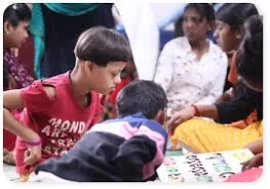
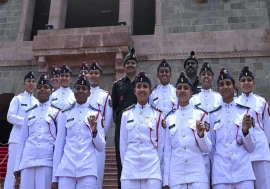
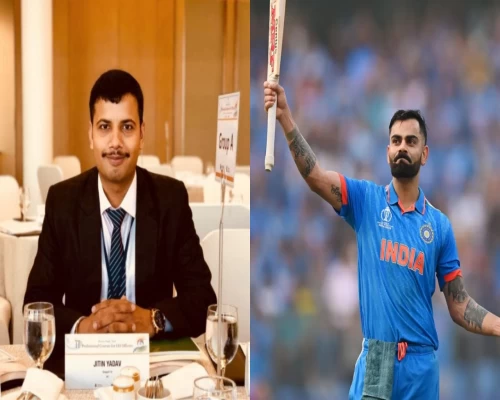
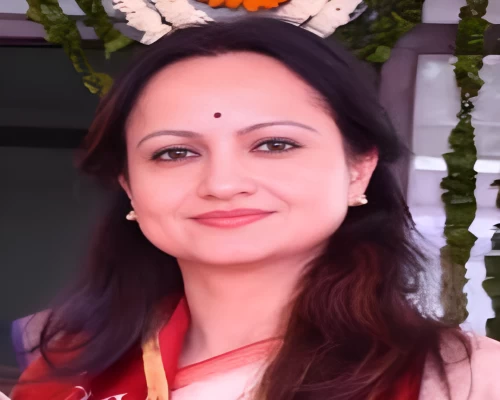
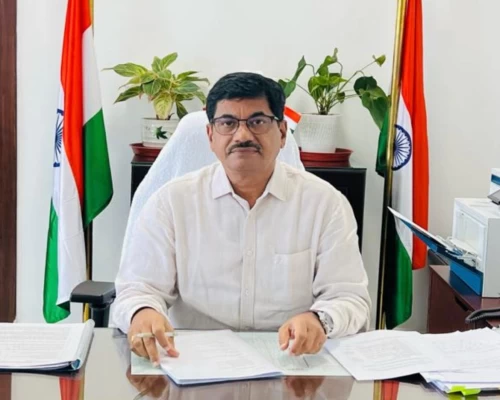
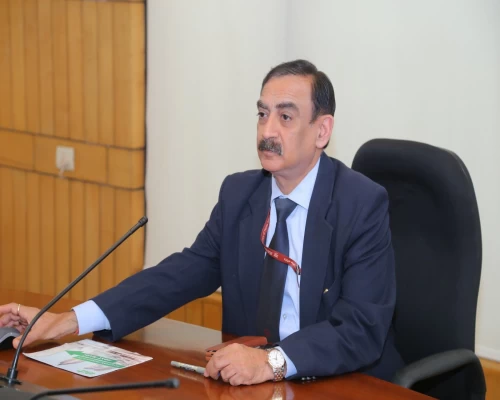
_500_x_400.webp)
